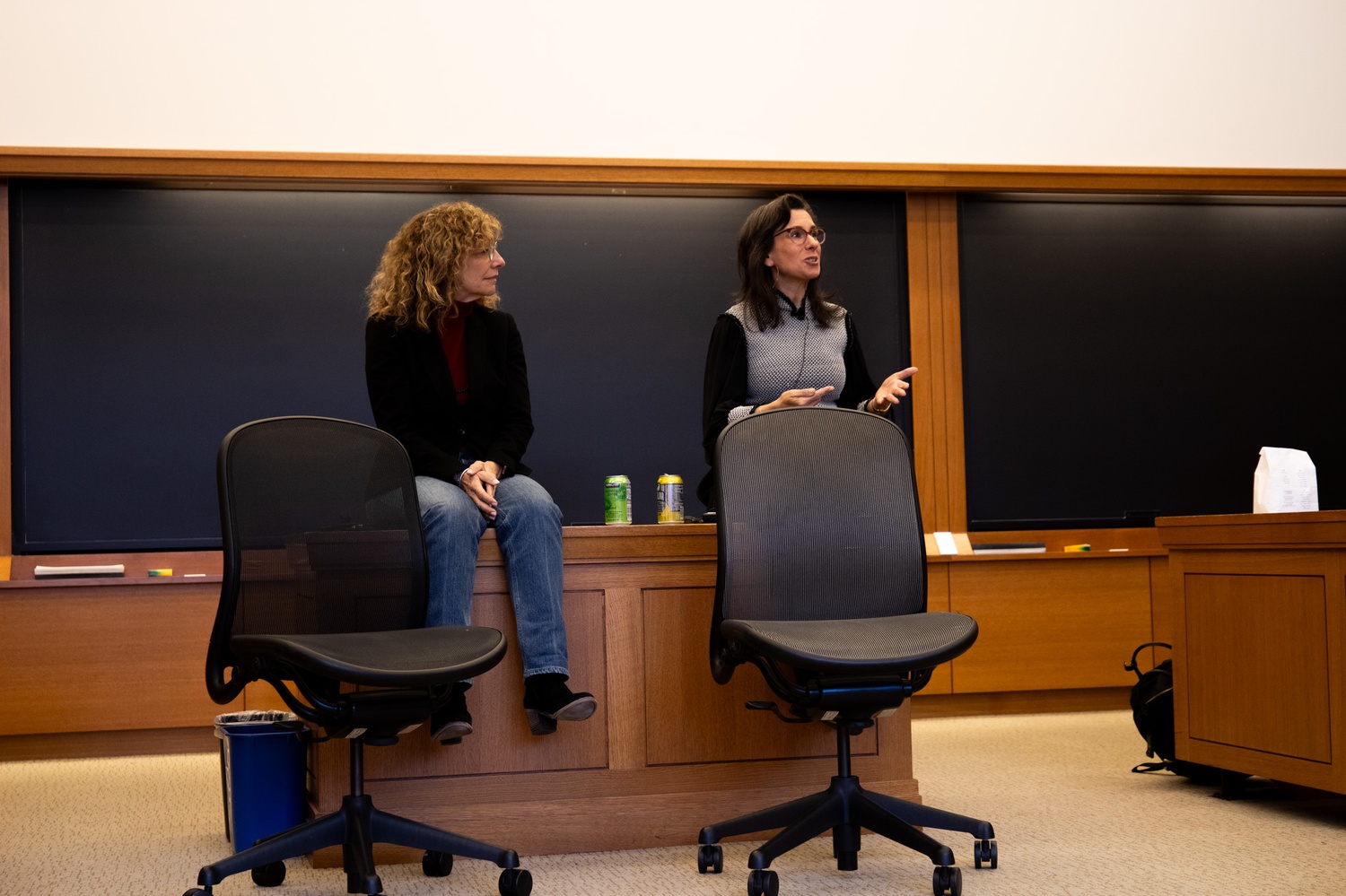
News
Summers Will Not Finish Semester of Teaching as Harvard Investigates Epstein Ties

News
Harvard College Students Report Favoring Divestment from Israel in HUA Survey

News
‘He Should Resign’: Harvard Undergrads Take Hard Line Against Summers Over Epstein Scandal

News
Harvard To Launch New Investigation Into Epstein’s Ties to Summers, Other University Affiliates

News
Harvard Students To Vote on Divestment From Israel in Inaugural HUA Election Survey
Jodi Kantor Talks Investigative Journalism at Harvard Law School Discussion

Jodi Kantor, a Pulitzer Prize-winning journalist at the The New York Times who exposed allegations of sexual assault against Harvey Weinstein in 2017, discussed the differences between journalism and legal careers at a Harvard Law School event on Wednesday.
“Journalism is a different path than politics. It’s a different path than activism,” Kantor said. “It’s about just trying to document things so we can have a better discussion of what’s happening.”
The event, entitled “The Reporter’s Craft: Journalism, Law, and the Pursuit of Truth,” was organized by the HLS Film, Literature, and Media Society and Women’s Law Association. During her visit to HLS, Kantor also spoke in a class on Mass Media Law taught by New York Times lawyer David McCraw.
Kantor, who dropped out of HLS to pursue a career in journalism, said the profession gives her a broad mandate to ask questions which she would not be able to do as a lawyer.
“This is one of the best things about journalism — the permission to break the social compact and ask questions that regular people don’t feel comfortable asking,” Kantor said.
When discussing her work on the Harvey Weinstein investigation, Kantor noted that many Hollywood executives were skeptical that her reporting would trigger substantive change in the industry.
“I was lectured at the beginning of the Weinstein investigation too, by a lot of Hollywood executives who essentially said ‘You’re a stranger to our industry. You don’t know anything about it. Jodi, I just have to tell you, unfortunately, sexual harassment is a part of our industry.’”
But her investigation with Megan Twohey led more than 100 women to accuse Weinstein of sexual harassment and abuse, propelling the #MeToo Movement into the cultural mainstream. Weinstein was ultimately found guilty of rape and sexual assault and sentenced to nearly 40 years in prison.
“We are trying to hold up an accurate mirror into power, and in the name of public service,” she said.
Kantor noted that despite their differences, lawyers and journalists “are all practitioners of a pretty rigorous set of tools and traditions.”
“These are one of the time-tested levers of democracy, and what I like about reporting on lawyers is sometimes feeling the tension and the clash between our very powerful tools and the sort of conventions of the law,” Kantor said.
David M. Herszenhorn, a journalist for The Washington Post who moderated the discussion, agreed with Kantor’s assessment.
“No institution, no person in power, is above the question or how to account.” Herszenhorn said. “We’re just doing our jobs recognizing these are people in a vibrant, participatory democracy that should be accountable to citizens. Absolutely, that’s what the press does.”
When discussing the future of journalism, Kantor spoke about the importance of the profession and provided words of advice for those considering a career in the field.
“I really want students to have is the courage to know that they can do work of meaning,” Kantor said. “I don’t want your generation to get cynical and take only the most remunerative jobs because it feels like nothing else matters or can succeed. That’s not true.”
“You really have to do the thing you really want to do. You owe yourself that,” Kantor said.
Correction: April 18, 2025
A previous version of this article misquoted Jodi Kantor as saying journalism is a “different path in activism.” In fact, Kantor said journalism is a “different path than activism.”
Want to keep up with breaking news? Subscribe to our email newsletter.
